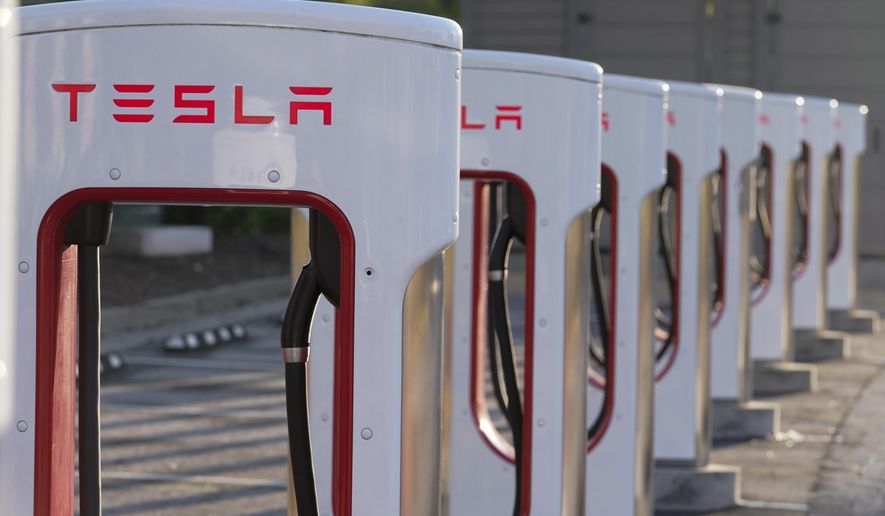Tesla has agreed to free up a portion of its electric vehicle charging stations for non-Tesla vehicles in order to capitalize on a newly unveiled $7.5 billion package of incentives for manufacturers, the White House announced on Wednesday.
The White House expects Tesla, one of several companies owned by Elon Musk, to avail at least 7,500 chargers to cars manufactured by its competitors by the end of 2024.
That total includes at least 3,500 new and existing 250 kW Superchargers along highway corridors and at hotels and restaurants.
Tesla, which currently operates the nation’s second-largest charging network, has also pledged to double its network of Superchargers.
The agreement was announced as the White House unveiled the Biden administration’s final rules for manufacturers to be able to tap into $7.5 billion in federal subsidies designed to expand the national network of electric vehicle chargers.
Under the program, companies that cash in on the incentive will have to adopt the U.S. standard, known as the Combined Charging System, for charging connectors on newly produced chargers.
The rules also require all chargers purchased with federal dollars to be assembled in the U.S.
Several other companies joined Tesla in tapping into the federal subsidies. Hertz and BP have announced their intention to add to the network of EV chargers in cities across the U.S., according to the White House.
Pilot Company, General Motors, and EVgo have also partnered on rolling out a nationwide network of 2,000 chargers at Pilot and Flying J travel centers stretching along U.S. highways.
General Motors has also partnered with charging manufacturer FLO in a project to install up to 40,000 public chargers in local communities by 2026, according to the White House.
The billions in federal incentives are part of President Biden’s goal to grow the share of electric vehicles to 50% of all new cars sold in the U.S. by 2030.
• Joseph Clark can be reached at jclark@washingtontimes.com.




Please read our comment policy before commenting.